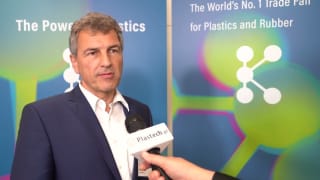
A consortium known as "avidens" brings together industry experts to assist businesses facing challenges when utilizing PCR recycled components. The consortium provides support through a range of services in the event that material and process quality fluctuates. These services include highly digitalized injection molding systems for sampling and tools equipped with sensor technology to examine material behavior. Furthermore, "avidens" serves as a point of contact for the whole value chain involved in the processing of plastics.
2025 will see new regulations for the use of recycled plastics
The goal of the European Green Deal is to change the industrial landscape in order to make the European Union an economy that is both resource-efficient and climate neutral by the year 2050. The realization of a circular economy- which places an emphasis on recycling, reuse, and waste reduction- is at the center of this change. This entails a significant change in production methods for plastics processors toward environmentally friendly ones, such as designing products to be recyclable and using more recycled materials.
Broader ramifications of the Green Deal include the need for more stringent environmental reporting, as required by the Corporate Sustainability Reporting Directive (CSRD).
Circularity is emphad by the Green Deal, even beyond reporting. Take the automotive sector as an example. The upcoming End-of-Life Vehicle (ELV) regulations mandate, among other things, that at least 25% of the plastics used in automobiles originate from recycled sources, with closed-loop recycling accounting for 25% of this requirement.
The plastics industry will unavoidably be impacted by this drive toward a more circular economy, which will present both opportunities and challenges. Processors will need to modify their operations to handle alternative material streams and guarantee the quality of finished products as the demand for recycled plastics rises. even if the availability of recycled materials forces them to use materials that fluctuate in quality.
Difficulties brought about by the EU's sustainability directives
The integration of recycled materials into plastics production processes poses notable challenges, despite the fact that increased use of these materials is an essential step towards a circular economy.
There is frequently uncertainty regarding the final part quality due to the inherent variability of recycled materials, particularly in light of the growing use of post-consumer recyclates (PCR). When compared to virgin polymer compounds, damaged materials and varying quality levels within a tank filling, bag to bag, or even within a batch can result in notable variations in molding behavior. As an illustration: The flowability of a plastic is directly impacted by its molecular chain length distribution, which is primarily determined by the plastic's processing history and parameters. Process control should take this inconsistency into consideration as it can result in higher scrap rates, inefficient processes, and challenges in achieving desired product performance.

Furthermore, finding deviations during the molding process is more difficult with recycled materials because control is essentially limited to the steps of material pre-processing, injection, and post-process quality assurance (QA) testing. The lack of 'live' feedback and material monitoring within the mold limits the capacity to identify and address problems quickly.
Until now, the opportunities for understanding material behavior were limited. Material suppliers are working hard to improve the quality of recycled content through rigorous sorting and cleaning procedures. While this strategy has produced encouraging results thus far, the increasing demand for recycled materials will make it difficult to maintain constant high quality without taking additional steps.


